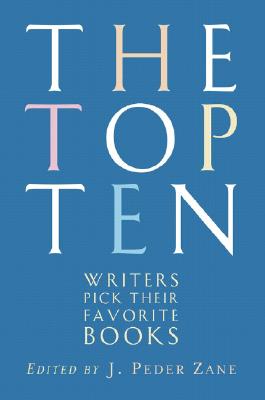Sent to you via Google Reader
The Greatest Books of All Time, As Voted by 125 Famous Authors
Why Tolstoy is 11.6% better than Shakespeare.
 "Reading is the nourishment that lets you do interesting work," Jennifer Egan once said. This intersection of reading and writing is both a necessary bi-directional life skill for us mere mortals and a secret of iconic writers' success, as bespoken by their personal libraries. The Top Ten: Writers Pick Their Favorite Books asks 125 of modernity's greatest British and American writers — including Norman Mailer, Ann Pratchett, Jonathan Franzen, Claire Messud, and Joyce Carol Oates — "to provide a list, ranked, in order, of what [they] consider the ten greatest works of fiction of all time– novels, story collections, plays, or poems."
"Reading is the nourishment that lets you do interesting work," Jennifer Egan once said. This intersection of reading and writing is both a necessary bi-directional life skill for us mere mortals and a secret of iconic writers' success, as bespoken by their personal libraries. The Top Ten: Writers Pick Their Favorite Books asks 125 of modernity's greatest British and American writers — including Norman Mailer, Ann Pratchett, Jonathan Franzen, Claire Messud, and Joyce Carol Oates — "to provide a list, ranked, in order, of what [they] consider the ten greatest works of fiction of all time– novels, story collections, plays, or poems."
Of the 544 separate titles selected, each is assigned a reverse-order point value based on the number position at which it appears on any list — so, a book that tops a list at number one receives 10 points, and a book that graces the bottom, at number ten, receives 1 point.
In introducing the lists, David Orr offers a litmus test for greatness:
If you're putting together a list of 'the greatest books,' you'll want to do two things: (1) out of kindness, avoid anyone working on a novel; and (2) decide what the word 'great' means. The first part is easy, but how about the second? A short list of possible definitions of 'greatness' might look like this:
1. 'Great' means 'books that have been greatest for me.'
2. 'Great' means 'books that would be considered great by the most people over time.'
3. 'Great' has nothing to do with you or me — or people at all. It involves transcendental concepts like God or the Sublime.
4. 'Great'? I like Tom Clancy.
From David Foster Wallace (#1: The Screwtape Letters by C.S...

No comments:
Post a Comment